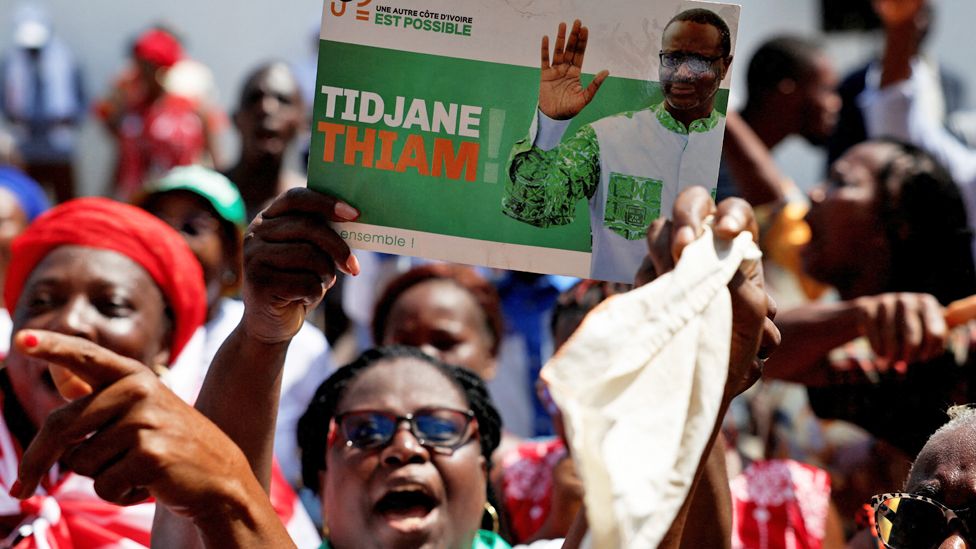Political Turmoil in Ivory Coast: Tidjane Thiam’s Candidacy Compromised
In the politically charged atmosphere of Ivory Coast, questions about democracy are mounting as Tidjane Thiam, a prominent candidate for the presidential election, faces a potentially crippling setback. Thiam, whose illustrious career spanned over two decades in the international business arena, is navigating a complex political landscape that challenges his aspirations for leadership.
A Setback in the Race for Presidency
The lead-up to the October elections faced a significant interruption when a judge ruled that Thiam, 62, had forfeited his Ivorian citizenship upon acquiring French nationality years ago, and did not take measures to regain it in time for the election. This shocking decision halted Thiam’s momentum, as he had been widely viewed as a strong contender to succeed the current president, Alassane Ouattara, who is in his third term.
Returning to Ivory Coast in 2022, Thiam was quickly recognized as a potential presidential candidate following the death of Henri Konan Bédié, the leader of the opposition Democratic Party of Ivory Coast (PDCI). His business acumen as a former CEO of leading firms like Prudential and Credit Suisse positioned him as a technocratic alternative to the incumbent, promising continuity in economic development.
The Court Ruling’s Impact
With the court’s decision looming large, the prospect of Thiam’s participation in the electoral race is uncertain. The ruling echoes Ivory Coast’s contentious past regarding issues of nationality, identity, and political integrity, as three other significant opposition figures are similarly barred from the political arena due to past convictions.
As tensions rise, Ouattara’s ability to run for a fourth term, bolstered by substantial political resources and a strong economic performance over the past years, puts Thiam in a precarious position. The ruling party, the Rally of Houphouëtists for Democracy and Peace (RHDP), may capitalize on Thiam’s exclusion, further deepening public discontent against the political establishment.
Public Disillusionment and Future Prospects
Historically, Ivory Coast’s societal fabric has been tested by political turmoil, particularly in the 1990s. Although the country has made significant strides towards stability, the recent events underscore lingering concerns about political fairness and identity-related sentiments that could influence voter behavior.
Amidst these challenges, there are glimmers of hope as recent elections in surrounding West African nations reflect the possibility of democratic transitions. Voter mobilization, particularly among the youth, finds resonance in calls for change, suggesting that the populace is ready for a shift from the status quo.
| Candidate Name | Political Party | Current Status |
|---|---|---|
| Tidjane Thiam | PDCI | Barred from candidacy |
| Alassane Ouattara | RHDP | Potential candidate |
| Laurent Gbagbo | PDP-CI | Barred from candidacy |
| Guillaume Soro | GPS | Barred from candidacy |
Thiam has expressed his frustration on the ruling’s implications, emphasizing, “The bottom line is, I was born an Ivorian.” His legal team argues the decision lacks fairness, sparking dialogue over the laws surrounding nationality that were designed to exclude potential candidates based on their familial roots.
As looming court proceedings potentially threaten Thiam’s leadership of PDCI, the situation draws attention to the delicate balance of political power and the impact of identity issues on modern governance in Ivory Coast. With the elections approaching, only time will tell if a compromise can emerge that allows greater political diversity in the race.


